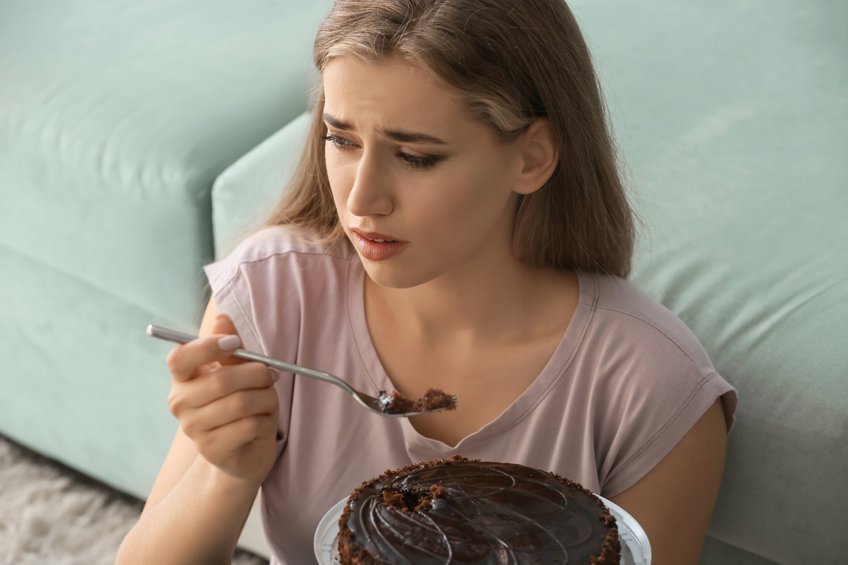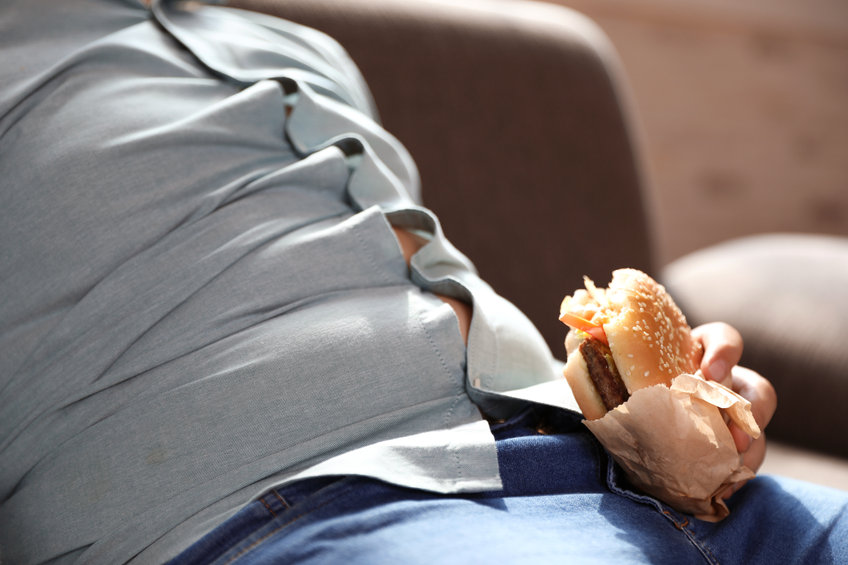How To Overcome Emotional Eating

Advice From the Experts at CJA Lifestyle Online Doctor Led Weight Loss Programme
If you’re struggling to lose weight, it may be due to your relationship with food. At CJA Lifestyle, we’re here to help you understand your attachment to food and how this can affect your weight loss.
Do you use eating as a coping mechanism to feel better or relieve stress? The best way to find out whether you suffer from emotional eating is to consider your cravings, identify your triggers, and find healthier ways to satisfy and deal with your feelings.
To start this off, let’s consider what emotional eating is.
What Is Emotional Eating?
Emotional eating is when you eat due to your emotions rather than physical hunger. This is also known as stress eating, comfort eating or anxious eating as it is used as a mechanism to help deal with those emotions. The most comforting food tends to be junk foods, sweets and anything unhealthy as these foods provide high levels of instant gratification.
Examples of emotional eating include eating an entire box of chocolate when you’re feeling sad, mindlessly eating a big bag of crisps when you’re bored, ordering a pizza for yourself when feeling lonely or getting takeout after a stressful day at work.
Although emotional eating may make you feel better whilst you’re eating, more often that not it will make you feel worse once you’re done. This is because it doesn’t deal with the emotional issue behind the eating. You may also feel guilt and shame due to consuming large quantities of unnecessary calories.
Unfortunately, comfort eating is part a continuous cycle. It starts with something happening that upsets you, which then makes you feel like you need to eat. This leads to eating more (unhealthy) food than you should have which in turn makes you feel shameful and guilty due to overeating. If you’re trying to lose weight then the emotional eating cycle can become a real problem as it may trigger an ongoing cycle due to you feeling upset over putting on weight rather than losing it, which leads you to comfort eat again.
However, it is possible to break this cycle and make positive change. But first, you need to consider what triggers your stress eating.
Common Causes Of Emotional Eating
Emotional eating isn’t just linked to unpleasant emotions (such as stress and anxiety), it can also be caused by positive feelings such as feeling the need to celebrate or reward yourself. So, you need to consider what situations and emotions make you feel that you have to eat.
1.) Stress eating
If you feel hungry when you’re stressed, you’re not alone as this is quite common. When stressed, your body produces high levels of cortisol (the stress hormone). This hormone makes you crave sweet, salty and fried foods as these are foods that provide pleasure and energy. Therefore, if you experience lots of stress in your life or job, you may turn to food to help cope with that.
2.) Eating to fill the void
You may eat to fill a feeling of emptiness that you have, or as something to do when you’re bored. Food acts as a distraction to occupy your mouth, mind and time. However, this is only a temporary distraction.
3.) Eating to avoid your emotions
When feeling an overwhelming amount of emotion (such as fear, sadness, anger, resentment), eating can be used to cover up this emotion. In this case, food acts as a blocker or silencer to help avoid emotions you would rather not feel.
4.) Celebratory eating
When surrounded by people who are also indulging, it’s easy to eat a lot. Done in moderation this is perfectly fine and you should have fun when it’s well deserved! However, if you use social situations as a crutch and an excuse to overeat, this is when you should reconsider how often you are ‘celebrating’.
5.) Reminiscent eating
You may find that your eating habits are influenced by your childhood, as you continually eat foods that provide you with a sense of nostalgia that allows you to relive your memories. Again, this is fine in moderation, but if you binge on food that makes you reminisce, you might be using food as a form of escapism from your current situation.
6.) Habitual eating
Sometimes, it’s hard to distinguish between emotional eating and actual physical hunger. This is especially hard when you fall into the habit of overeating. These habits may even have been formed in your childhood, such as being rewarded with sweets when doing well.
These common causes of comfort eating are important to keep in mind when trying to distinguish between whether you are actually hungry or eating due to your feelings.
Advice On How To Deal With Emotional Eating
At CJA Lifestyle, we know that dealing with anxious eating can be hard. So, we have some advice on how to deal with comfort eating which might help.
If you feel like you’re:
· Stress eating – Release any anxious energy by going for a walk or run, squeezing a stress ball or dancing and being silly!
· Eating to fill the void – Find something fun to do like watching an exciting TV show or movie (something you haven’t seen before), read a good book (something you haven’t read before), or learn a new skill (such as how to play an instrument, practice learning a new language, anything that you’ve always wanted to do).
· Eating to avoid your emotions – Keep a diary and try to work through those emotions rather than pushing them away. This may be hard, but it will help you in the end. If you don’t want to do that then you could call a family member or friend and have a nice conversation with them instead.
· Celebratory eating – This is fine in moderation! But to help you eat less, try to savour your food and eat slowly. Remember, even if other people are eating lots and eating quickly, this doesn’t mean you have to!
· Reminiscent eating – Look at pictures or talk to your friends and family about these memories rather than divulging in food. You could even plan a trip or activity to create new memories instead!
· Habitual eating – Habits are hard to break, but with practice and consistency it can be done. If you’re struggling to lose weight due to emotional eating, at CJA Lifestyle, we can help.
At CJA Lifestyle, we are a doctor led body transformation programme, which means we consider both the medical and physical aspects which are affecting your ability to lose weight. From this, we can create a personalised programme to help you reach the weight you want to be. We offer both physical training and nutritional advice (and weight loss injections, when appropriate), which are both important factors when it comes to dealing with stress eating.
Our clinic is based in Southampton, but our services are available to all online. So, if you feel like you struggle with emotional eating and that it’s impacting your ability to lose weight book a consultation with us online now by clicking here.
Transform your life with CJA Lifestyle today!



